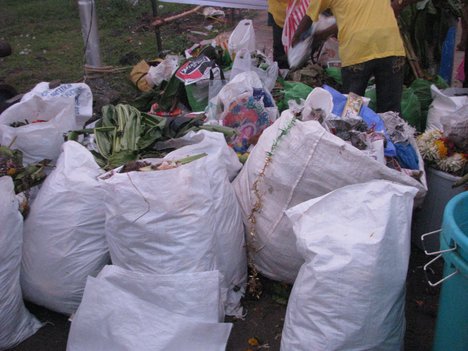Zero Waste Electoral Ward Initiative at Katraj Gaon, Pune
In a bid to provide a comprehensive solution to the waste problem, several agencies have joined hands to create a model Zero Waste Electoral Ward in Pune city. The idea

In a bid to provide a comprehensive solution to the waste problem, several agencies have joined hands to create a model Zero Waste Electoral Ward in Pune city. The idea behind it is to create a working model to show how every discarded item can be recycled or disposed in the best possible manner.
The aim of the project is to tackle the problems of inequity and poverty in the city by engaging wastepickers and ensuring dignity of labour and fair wages. It envisions a zero waste model, different from the centralized, capital intensive models proposed by numerous private entities working in waste management.
The impetus for the project came through the Pune Municipal Corporation (PMC) ban on plastic bags which the plastic industry argued against, saying that plastic bags constituted a very small proportion of the city’s waste. They claimed that plastic was perfectly recyclable, and that the problem of plastic waste was due to inefficient waste management rather than due to plastic itself.
Janwani – an NGO got together agencies such as Cummins India, SWaCH, MITCON, Kirloskar and Maharashtra Plastic Manufacturers Association (MPMA) to work towards a common goal and support the project. Cummins India is sponsoring the project as well as providing volunteers for generating awareness. Mr. Lalit Rathi, MPMA is helping establish systems for collecting and processing dry waste, particularly plastics. SWaCH has employed wastepickers to collect segregated waste from households and ensuring it reaches the secondary collection system while PMC is providing support in various ways.
An electoral ward is the smallest administrative unit in Pune and Katraj Gaon is among the largest wards in terms of area and population with nearly 12,000 establishments and a blend of high and low income – residential and commercial units, consisting of high income apartment complexes, individual bungalows, housing societies, industries, factories, shops, slums as well as a rural area, which served well for a pilot of a model ward as, if a sustainable zero waste system is successfully put to test in such an area, its replicability would be high.
A supportive Ward office, two existing biogas plants, a composting unit and adequate space for sorting sheds, a wet waste pelletization plant were additional bonuses of doing the pilot in Katraj.
The Results
Today 7,500 establishments in the ward give 9 tons of waste daily to wastepickers. Nearly 3 tons of wet waste segregated by wastepickers is sent to biogas plants. The burning and dumping of waste on open plots and public spaces has also reduced considerably. Dry waste collection has also gone up as a result of the efforts and a lot more dry waste is now being sold for recycling. A substantial amount of waste consisting of dry non-saleable and low value waste and mixed waste however, still has to be sent to the landfill.
Two months on, the project has shown progress but faces challenges such as an insufficient number of wastepickers willing to engage in DTDC work on the city’s fringes, ensuring 100% coverage and segregation by citizens, coordinating between the primary and secondary collection systems, political issues. Overcoming these hurdles will be fundamental in establishing a sustainable, decentralized wastepicker friendly system for replication pan India.

Similar Story

‘All For My Dad’s Memory’: This Hero Has Grown 12 Food Forests In The Heart of Mumbai
A tree lover since the age of 9, George Remedios quit his advertising job and founded ‘The Turning Tide’ to increase the forest cover in Mumbai. So far, he has planted 12 food forests with edible fruits and encourages people to grow their own food, even in limited spaces.
Read more >
If you found our stories insightful, informative, or even just enjoyable, we invite you to consider making a voluntary payment to support the work we do at The Better India. Your contribution helps us continue producing quality content that educates, inspires, and drives positive change.
Choose one of the payment options below for your contribution-
By paying for the stories you value, you directly contribute to sustaining our efforts focused on making a difference in the world. Together, let's ensure that impactful stories continue to be told and shared, enriching lives and communities alike.
Thank you for your support. Here are some frequently asked questions you might find helpful to know why you are contributing?


This story made me
-
97
-
121
-
89
-
167












